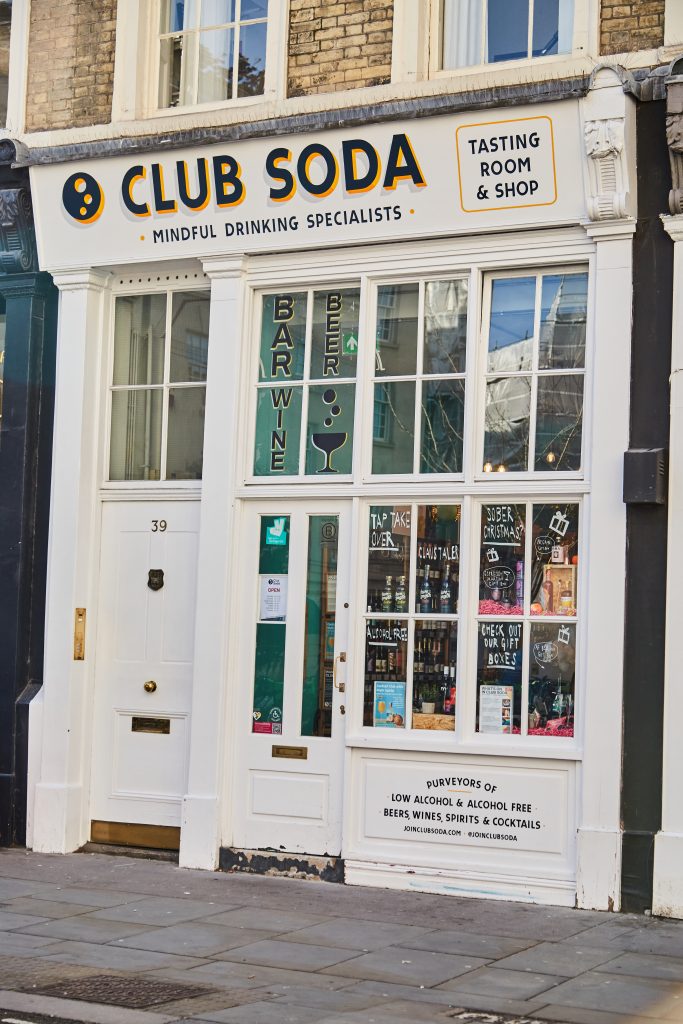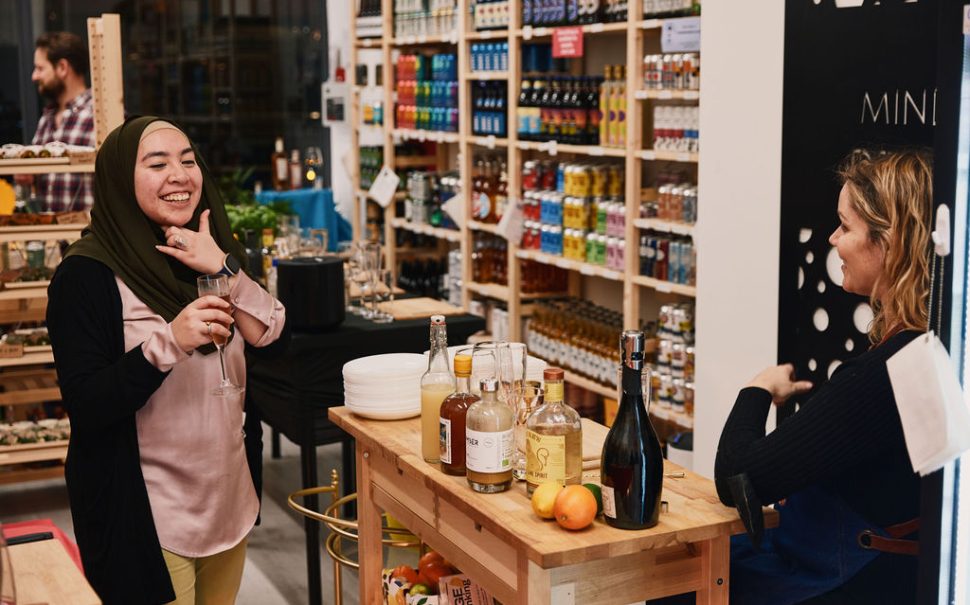Nearly half (44%) of all 18-24-year-olds now consider themselves drinkers of low or non-alcohol drinks, survey data has found.
It says the younger generation are now the most sober age group overall, and online social media groups such as the Sober Girl Society as well as shop creations such as Club Soda seem to be capturing the ever increasing trend – up from 31% in 2022.
The Portman Group’s sixth annual survey in partnership with YouGov revealed the data which explains how low and no alcohol products have become a regular part of UK drinking.
For the sixth year in a row, the most popular reasons people gave as to why they are drinking alcohol alternatives are because they want to avoid drinking excessively at social events and want to be able to drive home.
Millie Gooch, founder of Sober Girl Society, said: “I started using alcohol for confidence and I was really struggling with my mental health at the time, but I don’t think I necessarily realised it.”
“I’d wake up and have no recollection of how I’d got to the place I’d woken up in, falling asleep on trains and waking up at the end of train lines that were an hour from my house.”
Gooch explains how her decision to go sober has impacted her in the best ways possible, calling it the single best decision in her entire life.
Two in five of 18-24-year-olds surveyed are not drinking alcohol at all and almost a quarter of drinkers have cut down due to alcohol alternatives.
Gooch started Sober Girl Society years ago in a bid to create a sober space for women and find others who wanted a similar community.
The Instagram page now has nearly 220,000 followers and hosts events for women both virtually and in person, including events with Club Soda, a permanent shop in central London that opened in 2022 serving mostly alcohol free drinks and a small amount of low-alcohol drinks.
Laura Willoughby, co-founder of Club Soda said: “We’ve seen that most people are looking to moderate their drinking across the generations, not just young people.”
A large part of what Club Soda does is about educating venues on what to stock for the best alcohol free alternatives.
“We don’t need alcohol free-only spaces, we need a good range of alcohol free drinks in places where we socialise.
“Alcohol free drinks provide a reward and social inclusion, everyone can make a gin and tonic at home but you go out for a nicely made gin and tonic for quality and experience,” said Willoughby.

John Holmes, Professor of Alcohol Policy at the University of Sheffield said: “Young people are drinking less than they did 20 years ago but the big decline was really in the 2000s.
“What we’re seeing now is children who drank less underage, are now drinking a bit less as adults.”
Holmes explained that young people nowadays are more concerned about their dispositions to risk and about securing their futures which could explain the Portman survey data.
“Society is changing and we’ve seen that behaviours that were once very prevalent in society, like smoking, can go away again,” said Holmes.
Gooch explained her views on the data from the Portman survey and thinks young people are more accepting of their friends that don’t want to drink alcohol but that young people could be replacing drinking with other things like vaping and drugs.
After COVID, evidence from a variety of countries showed that people who were drinking at more moderate levels drank less, whereas heavier drinkers, drank more.
Many have speculated as to whether alcohol would be banned if it was introduced into society now, Holmes agreed it likely would be.
“It would be much easier to ban because you wouldn’t have a massive multi-billion pound industry behind it, and that’s what makes tackling alcohol problems so difficult.
“You’ve got an industry that really would prefer you didn’t stop drinking because it makes a large amount of profit from people who drink heavily,” said Holmes.
Data released last month from the Office of National Statistics revealed that in 2022, there were 10,048 deaths from alcohol-specific causes registered in the UK, the highest number on record.
Featured Image credit: @becabjones for Club Soda





